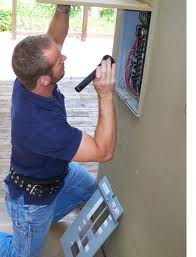‘
Continuing the Due Diligence series for those who buy fixer-upper properties. The due diligence period is the time period between the acceptance of the offer and the close of escrow. It is the time to find out if you really want the property. If its not as good as you thought, you can ask the seller for adjustments, or get out of the contract. Following the outline in “Investing in Real Estate for Dummies,” here are
Two tactics that sellers use to avoid a thorough and detailed property inspection
1. The buyer offers the buyer a warrenty or property protection plan that covers repair costs for major systems and appliances of the property. Although they may sound good on the surface, in my opinion these plans don’t usually live up to expectations because:
a. they can have an up front cost of several hundred dollars;
b. there is a deductible of $25 to $100 each time you file a claim; and,
c. when you file a claim, you may find that what you thought was covered may not
actually be covered due to exemptions in the policy.
About four years ago, I bought a house with a pool and the seller included a property protection plan that purported to cover the pool too. When I called the company to get the pool repaired, I was informed that the contract included an exeption that excluded any work on underground pipes. This must save the plan’s company a lot of money, as I imagine that most pools have underground pipes. Granted, I never read the fine print in the contract. I just believed the splashy promises on the cover of the information brochures that said the pool was covered. My bad, but the brochures are misleading at best.
2. Sellers have a house inspection done ahead of time, so they save you the time and the money by providing you with a copy of an inspection report. If the seller was trying to put something over on you, they may contract with an inspector that has a reputation of not being diligent when examining the house. I think this can also be a good thing, as you can review the seller’s inspection report and pass it along to yourinspection team. It may give you a good general idea of the condition of the house to start with.
When to make use of inspections
Looking at it another way, when you are selling a house, I think it is a useful step to have an inspection done by a reputable inspector. This way you show you have nothing to hide, and it serves as a good starting point for negociations. The buyer may have another inspection done, and if it turns up the same things that your inspection did, it may serve to build trust with the buyer.
In his book “How to Sell Your House in 5 Days,” Bill Effros advocates having the house inspected by a professional home inspector, and if you have a well or septic system, have them inspected as well. He suggests using a company with reports that looks professional, and not a hand-written report with fill-in-the-blanks and check boxes. You want a report you will be proud to show to potential buyers. Effros says, by conducting these tests in advance, you answer buyers’ questions and reduce the time it takes to close on the sale. Since you’ve paid for tests often not performed by sellers, your home is even more desirable to buyers, who will save money and will know what they’re getting before they start bidding.
An earlier post with My Observations of a 5-Day Sale.
NEXT: NEGOTIATING CREDITS IN ESCROW
ABC of Wealth Building at moolanomy.com

 Subscribe in a reader
Subscribe in a reader
Share this: del.icio.us | Digg | Ma.gnolia | Reddit | Stumble Upon |






